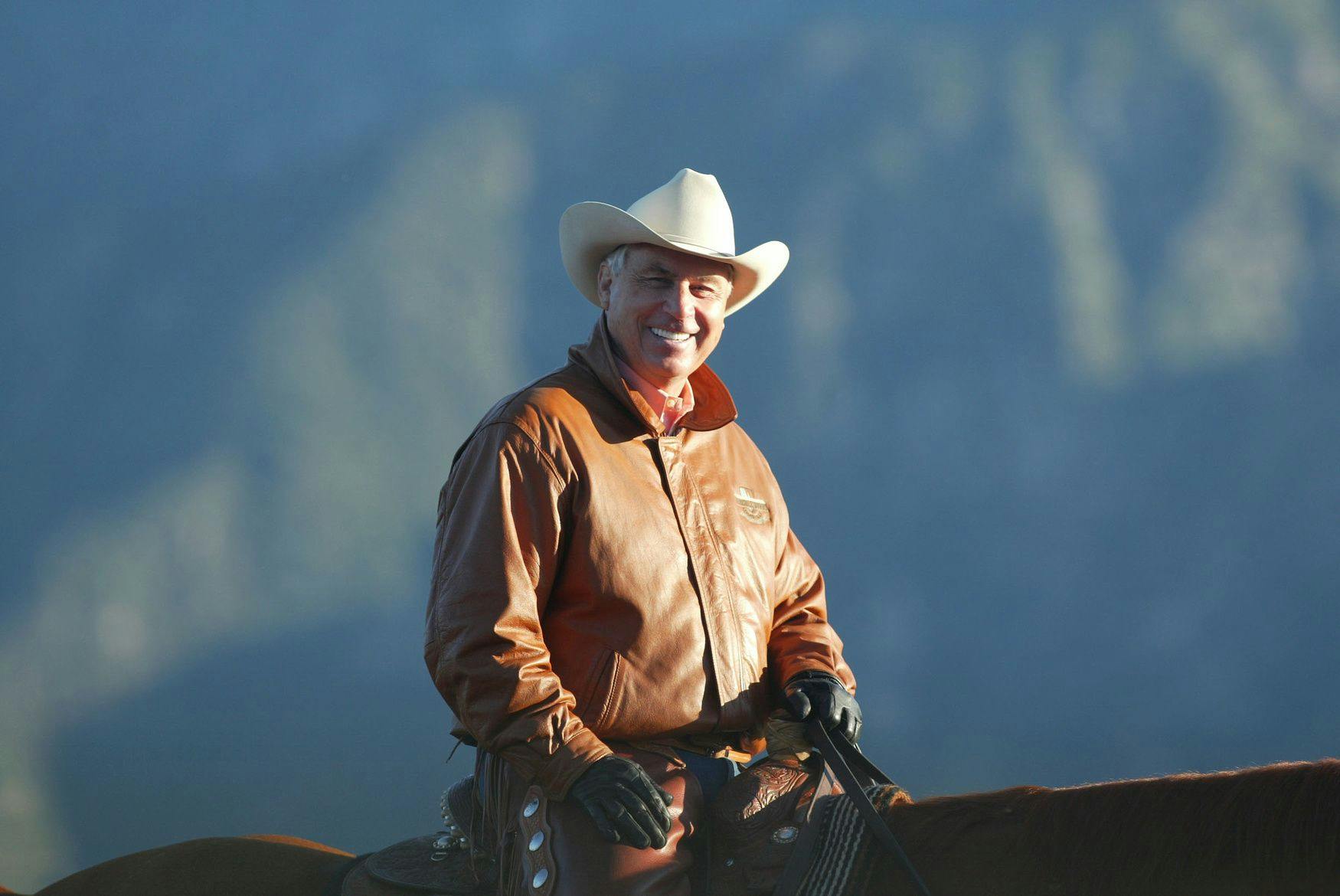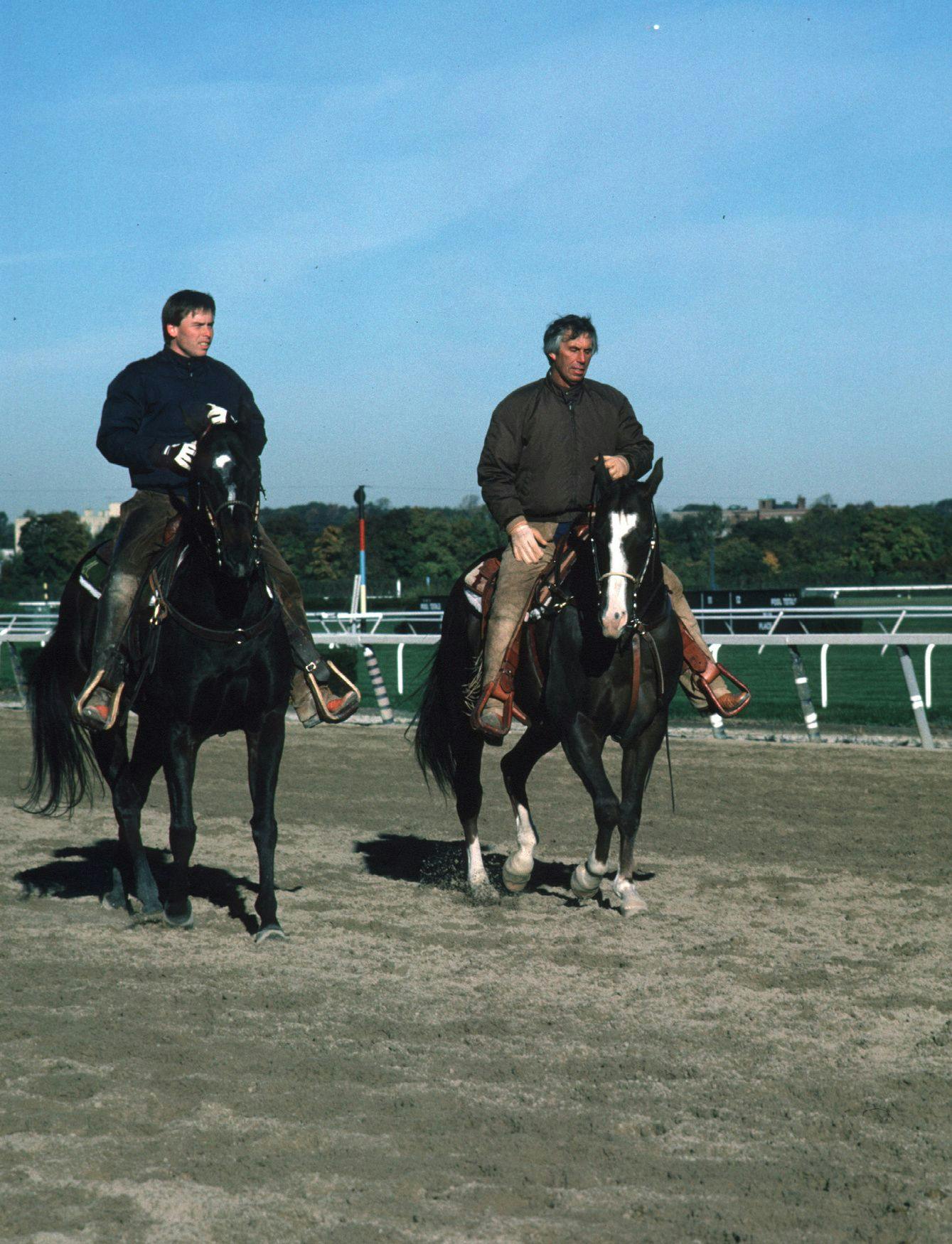Before the Winner’s Circle and Hall of Fame, D. Wayne Lukas Was a Boy with a Horse

His white Stetson cowboy hat was hard to miss on any given day at the races. Alongside his aviator sunglasses, that hat was part of the signature look of ‘the Coach,’ D. Wayne Lukas. A lifelong mentor, Lukas retained the nickname well past his days on the sidelines of a Wisconsin basketball court as he continued coaching young people on and off the racetrack.
How did this small-town boy become the Coach?
Over the course of his long Hall of Fame career, Lukas built a reputation as one of the sport’s greatest trainers, with nearly 5,000 wins and a long list of champions, but how did this small-town boy become the Coach? The answer lies in Lukas’s earliest years as a boy, with an innate sense of how to get the best of an athlete, human or equine.
Born Sept. 2, 1935, to Theodore and Beatrice Lukas, Darrell Wayne Lukas was the second of their three children. Though all three children were born in Antigo, Wisconsin, his father’s construction jobs took the family around the Mid-Atlantic before they settled back in Antigo by Wayne’s seventh birthday. Ted even had a turn as a milkman, using a horse and cart to deliver his wares. His son would marvel at how the horse knew the route and could traverse it with minimal prompting. His interest piqued, young D. Wayne knew he wanted to work with horses.
It was a full circle moment for "The Coach" when Princess Aliyah won the Valley of the Vapor S., given she is a granddaughter of Winning Colors! 🌟@nancyuryholthus catches up with D. Wayne Lukas after the race. pic.twitter.com/YOknhvCDGL
— TwinSpires Racing 🏇 (@TwinSpires) April 19, 2025
When he was seven, Lukas decided he wanted a pony.
Beatrice had grown up in Lexington, Kentucky, with her horsewoman mother, and his father had ridden his family’s workhorses, so the boy came by his desire to have one of his own naturally. A gray mare had caught his eye, but he needed to earn $110 to buy her. He joined his father on his daily route and delivered the Sunday newspaper every weekend for a year to save the money to buy her. Named Queenie, the mare would live to be 30 years old, long enough to be the first horse that Lukas’s son Jeff would ride.

D. Wayne Lukas with son Jeff Lukas (Photo by Horsephotos.com)
Because Antigo was a small town in northeastern Wisconsin – so small that Wayne and his siblings were educated in a one-room schoolhouse until high school – 4-H Club, Triple R Riding Academy, and country fairs were a regular part of life.
Lukas would hone his skills on horseback with Queenie as he learned trick riding and barrel racing. His brother Lowell also got a pony, Daisy, and along with friend Clyde Rice, Lukas spent many of his childhood days riding and working with horses.
Rice’s father was a Quarter Horse trainer on the leaky roof circuit, frequenting country fairs and other smaller racetracks. He advised the boys on how to buy a horse, which helped an 11-year-old Lukas as he started frequenting auctions.
Still in elementary school, the young horseman bid on grade horses, horses with mixed or uncertain breed pedigrees, and wild mustangs at local auctions. When his bids were unacknowledged, father Ted would step in and persuade the auctioneer to take his son’s bids. He and Rice would buy these grade horses and even wild horses and train them for resale or lease to riding academies for children. Lukas and Rice also participated in the Menominee tribe’s summer meets, open to horses of all breeds, and would have horses in every race, a habit he kept well into his days training Thoroughbreds.
After high school, Lukas attended the University of Wisconsin and majored in Education, with the goal of becoming a teacher and a coach. He had played basketball in high school, and while the future Hall of Famer professed not to be the best student or athlete in his class, he did enjoy the intensity of competition and the strategy and mentorship that coaching provided. During his college years, Lukas developed an affinity for a good suit, an extension of the tidiness in appearance his parents insisted upon. From then on, whether he was coaching a high school game or standing in the winner’s circle, D. Wayne Lukas would be the sharpest-dressed person in the place.
ICYMI - ⭐ 🎥 The highlight from last night's @KYTbred Kentucky Derby Trainers' Dinner.
— TwinSpires Racing 🏇 (@TwinSpires) May 2, 2024
Hall of Fame trainer D. Wayne Lukas and @KennyMcPeek exchange blows. 🥊 😂 pic.twitter.com/uIfbX7RbPW
While pursuing his Bachelor’s and then Master’s degrees, Lukas continued working with horses, focusing on training Quarter Horses. As a high school teacher and basketball coach, he would rise early to tend to his barn before heading to school for the day and then spend his summers traveling to racetracks like Park Jefferson in Sioux City, South Dakota. Soon, he was making more money training than he did as a teacher, and Lukas decided to pursue racing full-time in 1968, first with Quarter Horses and then, in 1978, switched to Thoroughbreds.
When Codex beat Genuine Risk in the 1980 Preakness S. (G1), D. Wayne Lukas, then 45, announced his presence at racing’s highest level. From there, he trained the winners of 15 Triple Crown classics and 20 Breeders’ Cup races and earned four Eclipse Awards for Outstanding Trainer in his Hall of Fame career. Lukas is one of the sport’s all-time greats, thanks to a childhood spent on the back of a horse.



